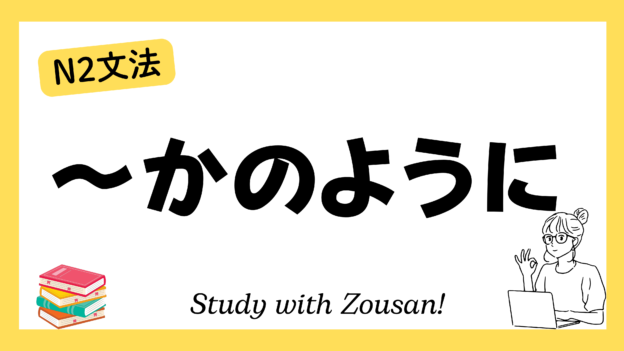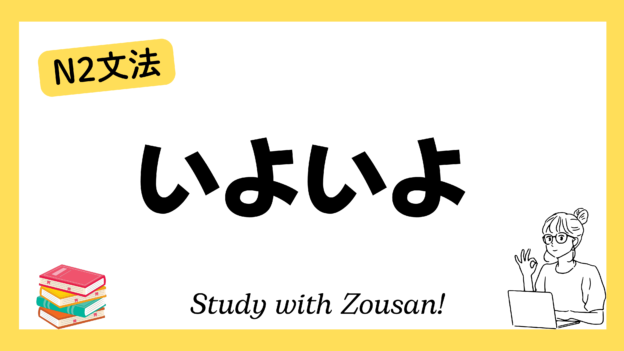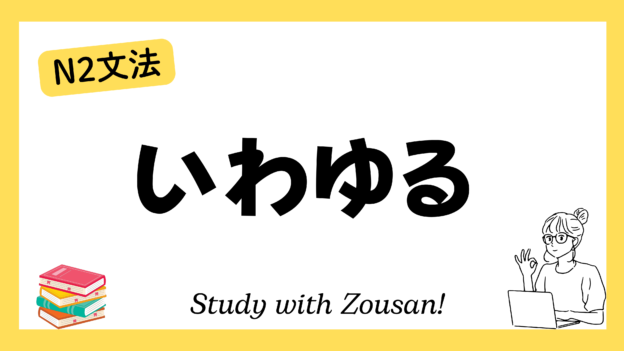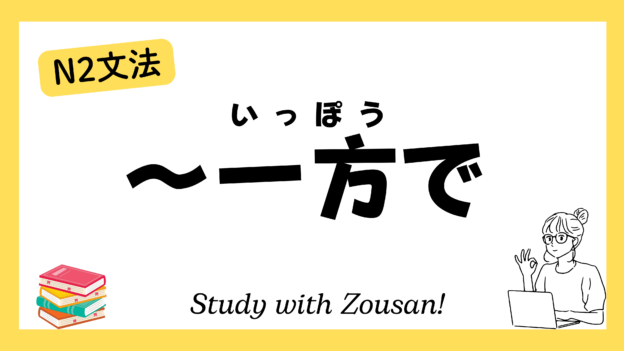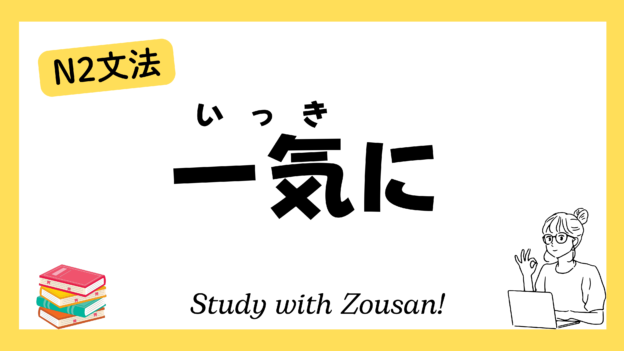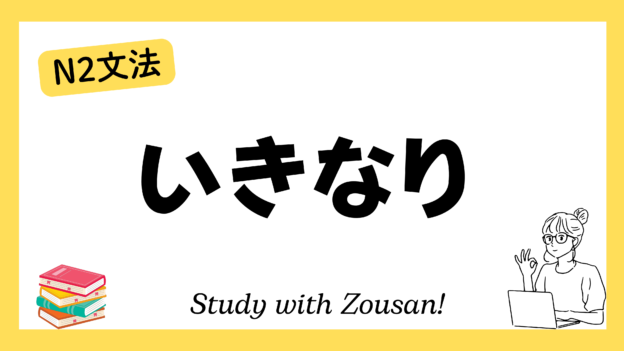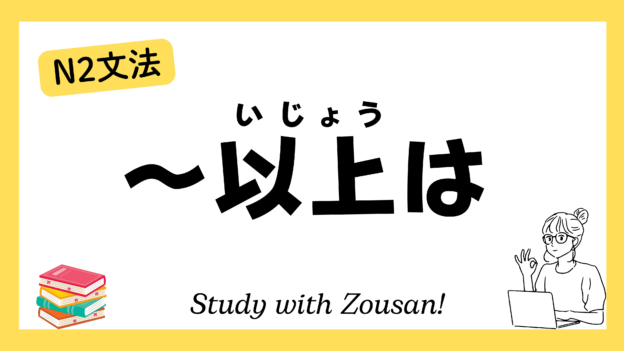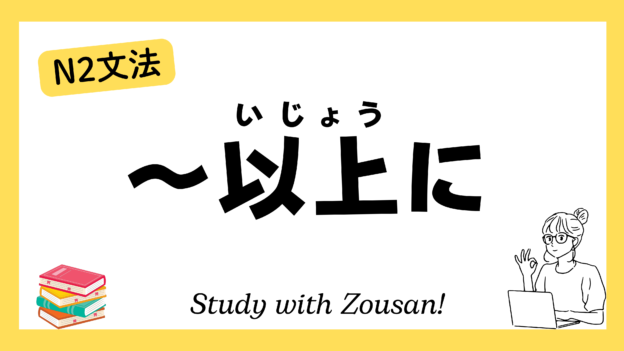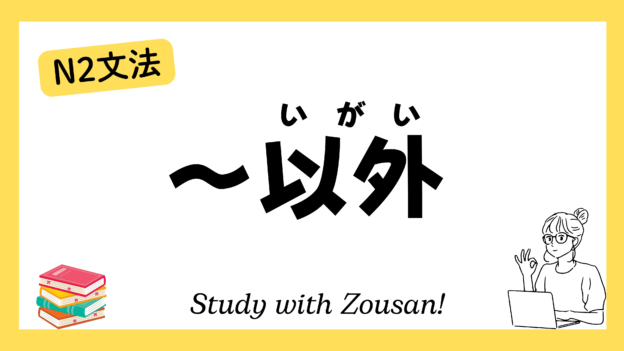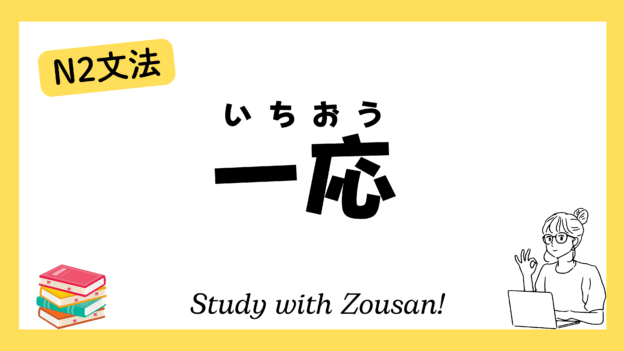Meaning: “As if…” / “As though…”
The structure “~かのように” is used to describe a situation or action as if it were another situation, though it is not actually happening that way. It is often used when the speaker wants to compare something to a similar image or feeling, giving the sense that it “appears as if” something is happening.
※Note:
- “~かのように” is often used with verbs and expresses an assumed or comparative meaning, not a factual statement.
- This structure is commonly used in both spoken and written language to create the impression or imagery that something is happening in a certain way.
Structure:
| Noun | + であるかのように |
| な-adjective | |
| Verb (casual) | + かのように + Verb |
| + かのような + Noun | |
| + かのようだ |
Example:
-
-
-
🌟 彼は何も気にしないかのように笑った。
(かれ は なにも きに しない かのように わらった)
He laughed as if he didn’t care about anything. -
🌟 彼女は全て知っているかのように話していた。
(かのじょ は すべて しっている かのように はなして いた)
She was talking as if she knew everything. -
🌟 彼は見られているかのように急に静かになった。
(かれ は みられている かのように きゅうに しずか に なった)
He suddenly went quiet as if he were being watched. -
🌟 彼は夢でも見ているかのように目を輝かせていた。
(かれ は ゆめ でも みている かのように め を かがやかせていた)
His eyes sparkled as if he were dreaming. -
🌟 彼女はまるで何も起きていなかったかのように落ち着いていた。
(かのじょ は まるで なにも おきていなかった かのように おちついていた)
She was calm as if nothing had happened. -
🌟 その部屋はまるで誰かが住んでいるかのように整っていた。
(その へや は まるで だれか が すんでいる かのように ととのっていた)
The room was organized as if someone were living there. -
🌟 彼は何か大事なことを思い出したかのように立ち上がった。
(かれ は なにか だいじ な こと を おもいだした かのように たちあがった)
He stood up as if he had remembered something important. -
🌟 その犬は主人を待っているかのように入口で座っていた。
(その いぬ は しゅじん を まっている かのように いりぐち で すわっていた)
The dog was sitting at the entrance as if waiting for its owner. -
🌟 彼女は何も怖くないかのように堂々と歩いていた。
(かのじょ は なにも こわくない かのように どうどう と あるいていた)
She walked confidently as if she were afraid of nothing. -
🌟 彼は全てが順調に進んでいるかのように安心していた。
(かれ は すべて が じゅんちょう に すすんでいる かのように あんしん していた)
He seemed relaxed as if everything was going well.
-
-


